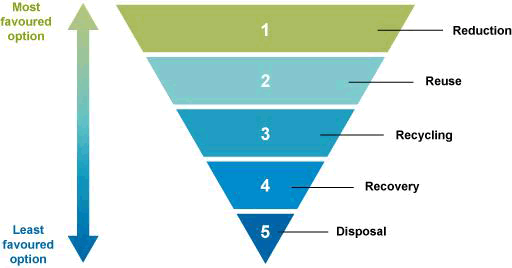2021 Conference Announcement - (2020) Volume 11, Issue 5
Sayang which is part of Sumedang district is a rapidly developing area since 1990 it’s rapidly developed when several State Universities were built in the area. This was followed by the growth of apartments, boarding houses, restaurants, and other public facilities to support student life and education in the area. Unfortunately, the rapid development of the area, waste management has been neglected, although waste management is one of the key factors in the urban planning system, at the same time, this is one of the major problems faced in Sayang. This study was conducted to evaluate the current waste management and will be discussed from the collecting and sorting system at the source, a transportation system that supports and final management of the wastes. Knowing and finding the potential of each type of categories of solid waste that could be recycled and reuse will give value to the waste as we can develop an economic activity to increase the income in the community also it reduces the amount of solid waste that goes into landfill. Moreover, waste management is a possible way to play and be a part of the transition towards a circular economy. By implementing the circular economy concept in the system as a basis to develop waste management by involving the community in the process. As the circular economy can be an important aspect of sustainability, this study will give a contribution to fulfilling sustainable development goals.
In every aspect of human life unwanted materials are generated and then discarded simply because they are considered to be wastes. Think about preparing a meal; there will be vegetable peelings and fruit cores, there may be skin and fat trimmed off fish and meat, and, if canned or bottled ingredients are used, there will be the empty bottles and cans. Households, businesses, industries, the healthcare system and public organisations all produce wastes that need to be processed. In Study Session 7 you learned about the different types of wastes, and in this study session you will learn how the waste hierarchy can be applied to help reduce, reuse or recycle the solid wastes that we produce.

At the top of the hierarchy is waste reduction. This is the best option because the most effective way to limit the health effects and environmental impacts of a waste is not to create waste in the first place. Making any new product requires materials and energy. Raw materials must be extracted from the Earth and processed, and the product must be manufactured, packaged and transported to wherever it will be sold. Each of these stages may produce solid waste as well as liquid wastes and air pollutants. If we can find ways of making a particular item whilst producing less waste in the process, this is one of the most effective ways to reduce pollution, save natural resources, protect the environment and save money. Industry has a major part to play in waste reduction. If more efficient manufacturing processes were adopted, greater quantities of products could be made without increasing the use of raw materials. Industry can also work to incorporate less material into its products – so for example, an item could be packaged using less cardboard than before.
Waste reduction is also important at household level. In Ethiopia a number of waste reduction initiatives have been put in place in big cities like Addis Ababa and Mekelle by informal organisations and private sector enterprises. These initiatives frequently involve several different stakeholder groups including urban Health Extension Workers (HEWs), civil society, private sector enterprises and organised women’s development groups. The local kebele administration and appropriate experts from the Woreda Health Office and Greenery and Beautification Office are also likely to be involved. The Ministry of Health has produced some teaching aids and promotional materials aimed at educating communities on how to reduce and minimise waste at household level. Educational campaigns can raise awareness of the individual economic incentives, and can also be used to reduce the stigma attached to working with waste. Part of your role as an urban WASH worker may be to help educate householders, through home visits and at community gatherings, about better ways to manage their domestic waste. This can result in behavioural change among the community members and increase their active participation in waste reduction (and reuse) at the household level.
There are many possible ways of reducing the amount of waste produced at home that could be suggested to householders. These include educating and encouraging them to: Buy products that use less packaging. Buying in bulk, for example, can reduce packaging and save money. Where households cannot afford to pay large sums of money up front, it may be possible for neighbours to club together and buy a large quantity of a basic foodstuff between them.
Make use of reusable rather than disposable items. For example, use refillable containers where possible; washable rather than disposable nappies; cotton handkerchiefs rather than paper tissues; rechargeable batteries and refillable ink pens.
Use their own shopping bags, preferably made of cloth or other recycled material rather than plastic bags.
Minimise food scraps or feed these scraps to animals, if appropriate. Repair and maintain items such as clothing so that they last longer.
Business and Economics Journal received 6451 citations as per Google Scholar report